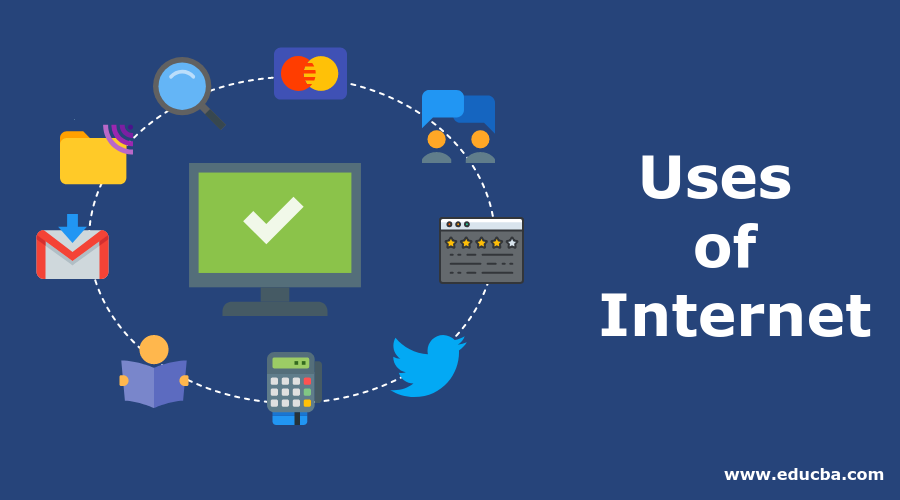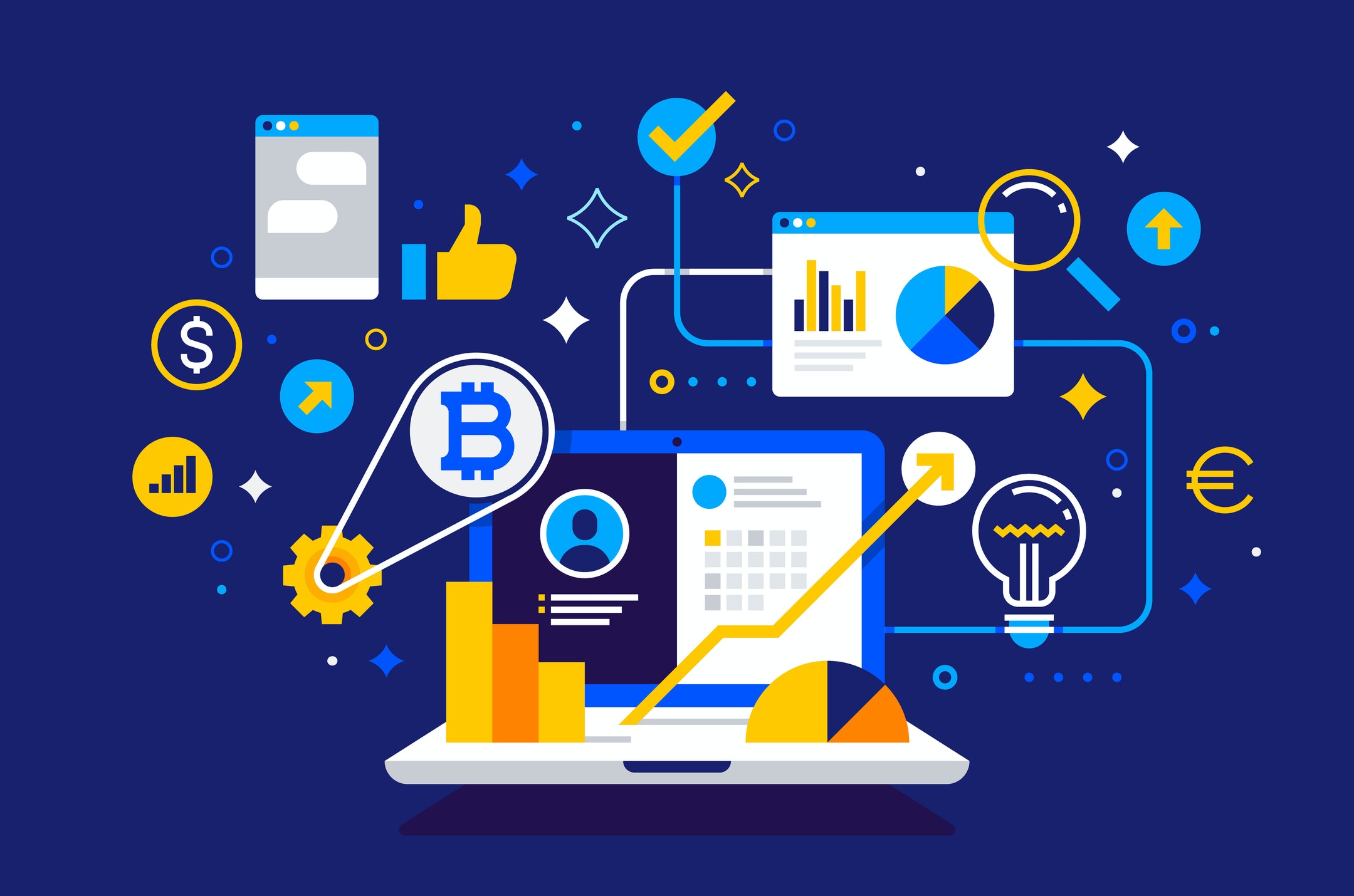Introduction to Uses of Internet
Internet is a virtual networking medium that can be connected and used on a variety of devices these days. It enables the users to send, receive, collect, store, update, delete, and many other operations of the data across the world. Internet usage is expanding its boundaries every day, as the technological growth is huge. A few of the major uses of Internet are e-commerce, e-learning, knowledge sharing, social connectivity, variety of media, file transfer, communication, etc.Why we Use the Internet?
This is the basic uses of the internet which are as follows:- Seek information on anything across the globe on a real-time basis.
- Communicate, collaborate with others.
- Telecommute to office or work from home.
- Do transactions with business entities.
- Down load files from a remote.
- Get educated and entertained.
- Carry out social.
- Do group activities.
- Collect operational data from remote equipment (stationary as well as moving).
- Process data while it is streamed to the central server.
- Get real-time data on the surrounding devices, systems, weather to automate activities.
- Design a decision-taking system as against the decision support system.
- Connect people, stakeholders, machines and everything.
Top 9 Uses of Internet
Here are the top uses of the internet which are explained below in detail:
1. Electronic Mail (email)
The first major use of the internet is Email. People thronged to Email for sharing information, data files, Photos, Videos, Business communications, and any other files instantaneously with others. This had enabled faster communication between people and improve business efficiency. Email has reduced the usage of paper considerably and reduced load on physical mail systems.Though other latest collaboration tools provide many rich features, they are not able to de-popularize Email and it still rules the official and personal communication. There are many free Email websites offering mail services and practically every individual has an Email address and connected by Email. Email concepts paved the way for developing many innovative tools for improved collaboration.
2. FTP File Transfer
This is the second major use case for the internet in the early days. FTP is the file transfer protocol that enables data exchange between two stakeholders over internet media in a secure way. The data exchange may occur between two business entities or customers with business and vice versa. Normally E-mail restricts the size of a file that can be shared and also it is not secured to share sensitive and confidential data across public networks. FTP concept is still in use even today in mobile apps for files downloading.3. Search Engines
These engines locate the information one seeks, available in whichever server across the globe (world wide web). Google, Yahoo, and MSN are the renowned search engines in use today. One can search on anything in this site and the search question can be in any format. In fact, People have started using the word Google as a generic verb synonymous to search.4. E-Commerce
The Internet enables the selling of goods and services in online mode. There are many e-commerce platform vendors like Amazon, Ola who aggregate several products/services available in the market and sell them through their portal to customers. Products are procured by platform vendors, stored in their warehouses, packed and distributed by them in their own brand. Customers get a good discount and they don’t have to visit physical stores.5. Online Banking
Called as Net banking, it allows doing banking transactions at ease sitting at home or while on mobile. Footfalls in the bank branches have come down appreciably with almost all the services are available in net banking 24×7. Any amount of money can be transferred instantaneously through this facility. E-Banking supports Electricity bills, Telephone bills, and other services payment.6. Cashless Transactions
Bill Payment at merchandise outlets through debit cards, credit cards, UPI gateway are on the increase. Cash circulation gets reduced in the system to the extent of the growth of these transactions. It’s growing by more than 50% every year and it is expected to grow by 10 times over the next 5 years.7. Education
The Internet offers a wealth of educational material on any subject with structured navigation and search facilities. One can seek any reading material and the internet will get it for them from any server in any part of the world and people need not have to go to libraries to go through books. Those who cannot attend physical (face to face) class can take an online course where they get connected to the teacher, in the other part of the world, in video mode and get taught on the subject backed up other audiovisual tools.8. Collaboration
Online chat tools like messenger, Skype, and other video conferencing tools help people to get connected 24 x7 and have a hassle-free business and personal discussion. This avoids unwanted travel by people and save their time for productive use. The Internet has also facilitated work from home with seamless connectivity to the office and avoid daily commuting.9. Social Networking
Internet connects people online and enables them to form social groups. Information, Ideas, views, and opinions on any social/political issues are exchanged. The political and social organization makes use of this platform in promoting their interest among the public.Applications of Internet
With the evolution of IOT, Artificial Intelligence technologies, supported by computing resources in the cloud, more and more new applications are being developed over the internet layer and few of them are:- Tracking the Vehicle – Fleet Management system
- Monitoring the health of the moving vehicle – Telematics
- Autonomous and Driverless vehicle – 5G networks
- Remote diagnostics and triggering preventive maintenance of equipment
- Monitoring Children in the home from outside
- Online streaming of events
- Entertainment – Contents sharing platform (OTT), Internet TV, Web Serials
- Connected Machines – Manufacturing









0 Comments